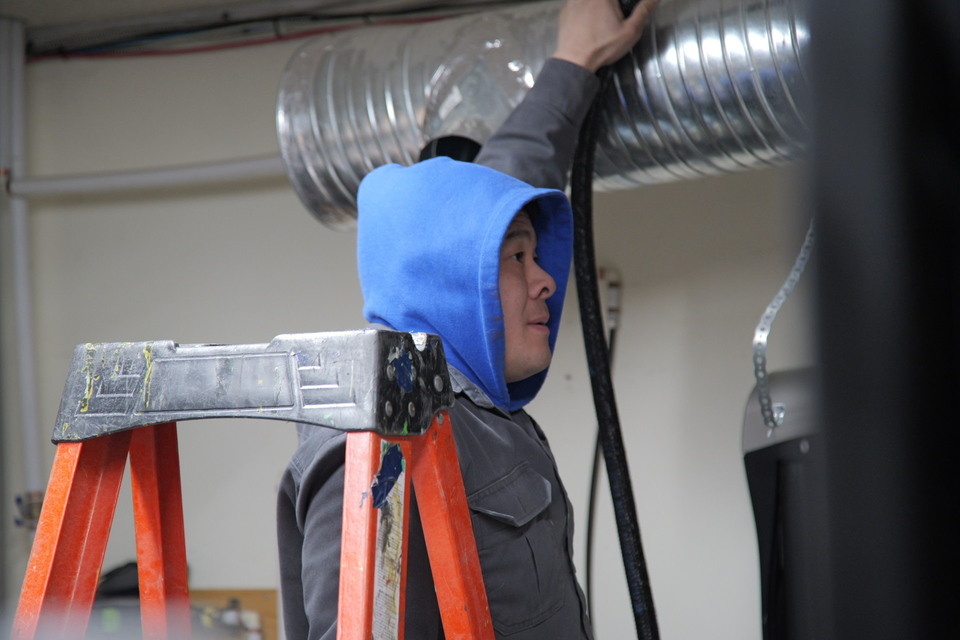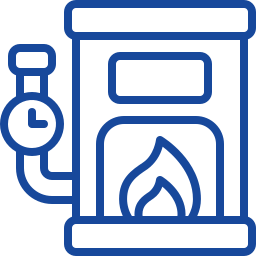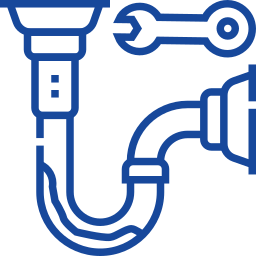The Complete Guide to AC Repair
Problems, Solutions & Maintenance
Get a Quote

AC Repair Introduction
When your air conditioning system fails during a heatwave, understanding AC repair basics can mean the difference between a quick fix and costly emergency service. This comprehensive guide covers everything homeowners need to know about maintaining, troubleshooting, and repairing their cooling systems.
Understanding Common AC Problems
Air conditioning systems are complex mechanical systems that can develop various issues affecting performance. One of the most frequent complaints involves units that won’t turn on. This frustrating situation often results from simple electrical problems rather than major system failures. Homeowners should first check their circuit breaker panel for tripped switches and examine their thermostat for dead batteries or incorrect settings before assuming serious issues.
Another common problem is reduced airflow through vents. This gradual issue typically develops as air filters become clogged with dust, pet hair, and other airborne particles. Restricted airflow forces the system to work harder, increasing energy consumption and potentially leading to frozen coils or compressor failure. The simple solution of regular filter changes (every 1-3 months depending on usage) can prevent most airflow-related problems.
Perhaps most alarming is when an AC runs constantly but blows warm air. This malfunction can stem from multiple causes including low refrigerant levels, dirty condenser coils, or compressor failures. While homeowners can safely clean outdoor condenser coils (after turning off power), refrigerant issues always require professional AC repair due to the specialized knowledge and EPA certification needed for proper handling.
When Professional AC Repair Becomes Essential
Certain air conditioning problems absolutely require professional intervention. Refrigerant leaks represent one such critical issue. These not only impair cooling performance but involve chemicals that demand EPA-certified technicians for proper recovery and recharge. The process requires specialized equipment to accurately measure pressures and charge levels while preventing environmental contamination.
Electrical issues pose another serious hazard best left to professionals. Problems like frayed wiring, faulty capacitors, or frequent breaker trips can lead to system damage or even electrical fires if improperly addressed. Similarly, compressor failures – often signaled by loud knocking or humming noises – require expert diagnosis and AC repair due to the component’s complexity and central role in the cooling process.
Another red flag is short-cycling, where the system turns on and off too frequently. This behavior stresses components and wastes energy while potentially indicating serious underlying issues like improper sizing, refrigerant problems, or thermostat malfunctions. A qualified technician can pinpoint the exact cause through system diagnostics.
The Value of Professional AC Services
Professional AC repair offers several advantages over DIY attempts. Certified technicians possess the training to accurately diagnose problems that might confuse homeowners. Their expertise leads to proper, lasting repairs rather than temporary fixes that often worsen over time. Professional servicing also maintains manufacturer warranties that typically void when unlicensed individuals attempt repairs.
Energy efficiency represents another significant benefit. Properly maintained systems operate at peak efficiency, sometimes reducing energy consumption by 15-20% compared to neglected units. This translates to lower utility bills and reduced environmental impact. Technicians also perform safety checks during service calls, identifying potential hazards like gas leaks in hybrid systems or electrical issues before they cause damage.
Essential AC Maintenance Practices
Preventative maintenance remains the most cost-effective way to avoid major AC repair bills. The simplest yet most impactful task is regular filter changes. These inexpensive components protect the system’s interior while improving indoor air quality. Homeowners should check filters monthly during peak usage seasons.
Outdoor unit care is equally important. The condenser needs adequate clearance (2-3 feet minimum) from plants, fences, and structures to ensure proper airflow. Seasonal cleaning of the condenser coils removes accumulated dirt and debris that impair heat transfer. Gently rinsing with a garden hose (after turning off power) typically suffices for basic cleaning.
Scheduling annual professional maintenance before cooling season allows technicians to identify developing issues. A comprehensive tune-up includes:
-
- Refrigerant level checks
- Electrical component testing
- Thermostat calibration
- Drain line inspection
- System performance evaluation
This proactive approach catches small problems before they become expensive repairs while optimizing system efficiency.
FAQs About AC Repair
Q: How often should I have my air conditioning system professionally serviced?
A: HVAC professionals universally recommend annual professional maintenance for residential AC systems. The ideal time for this service is during spring, before the heavy cooling season begins. This timing allows technicians to address any issues that may have developed during winter inactivity and ensure your system is prepared for summer demands. During a professional tune-up, technicians will clean critical components, check refrigerant levels, inspect electrical connections, test system controls, and verify proper airflow. For older systems (10+ years) or units in extreme climates, semi-annual check-ups may be advisable to maintain optimal performance and catch potential problems early.
Q: What factors determine when I should replace rather than repair my AC unit?
A: Several key factors should guide your repair-or-replace decision. Age is the primary consideration - most systems last 12-15 years, and replacement typically makes sense after 10 years if facing major repairs. Compare repair costs to replacement value; if repairs exceed 50% of a new system's cost, replacement usually offers better long-term value. Consider efficiency improvements - modern units can be 20-40% more efficient, significantly reducing energy bills. Frequency of repairs matters too; multiple annual repairs signal declining reliability. Environmental factors also play a role - if your system uses discontinued R-22 refrigerant, replacement avoids future availability issues. A professional energy audit can provide precise calculations for your specific situation.
Q: What are the dangers of attempting DIY refrigerant repairs on my AC system?
A: DIY refrigerant handling poses multiple serious risks. Legally, Section 608 of the Clean Air Act requires EPA certification to handle refrigerants, with fines up to $37,500 per violation for non-compliance. Technically, improper charging (either over or under) can damage compressors, the most expensive system component. Refrigerants can cause frostbite on contact and displace oxygen in confined spaces. Environmentally, improper release contributes to ozone depletion and global warming. Professionally, DIY repairs often void manufacturer warranties. Specialized equipment like manifold gauges, vacuum pumps, and recovery machines are needed for proper service. Perhaps most importantly, refrigerant issues are often symptoms rather than causes - a qualified technician can identify and fix the root problem (like a leak) rather than just treating symptoms.
Q: Why does my AC freeze up, and how can I prevent it?
A: AC systems freeze due to three primary causes, each requiring different solutions. Low refrigerant levels reduce pressure in the evaporator coil, causing temperatures to drop below freezing. This requires professional leak detection and repair. Restricted airflow from dirty filters or blocked vents prevents proper heat absorption, also leading to freezing. Homeowners can prevent this through regular filter changes and keeping vents unobstructed. Finally, outdoor temperatures below 60°F can cause freezing in some systems, requiring a low-ambient kit or simply avoiding AC use in cool weather. When you notice ice buildup, turn the system off to allow complete thawing before attempting any repairs or calling for service, as running a frozen system can cause compressor damage.
Professional AC Repair Services
When your cooling system needs attention, professional AC repair services provide the expertise and reliability homeowners need. Certified technicians offer:
-
- Accurate diagnostics using specialized tools
- Proper refrigerant handling
- Electrical system expertise
- Manufacturer-approved repairs
- Warranty protection
Emergency services are available for sudden breakdowns during extreme weather. Regular maintenance plans help prevent unexpected failures while optimizing system performance and efficiency.
For professional AC repair you can trust, contact our team of licensed technicians today. We provide honest assessments, quality repairs, and maintenance plans tailored to your system’s needs. Call now to schedule service and ensure your home stays comfortably cool all season long.
More Services
Contact Us
Are you dealing with a plumbing issue in your Calgary home? Contact Wiehler Mechanical today for fast, professional service! Whether it’s a hot water tank replacement, drain cleaning, or routine maintenance, we’re here to help. Call us now or visit our website to schedule an appointment!
Call us today
at 403-300-0813 or request service online to get fast help for your home’s plumbing and HVAC needs!



